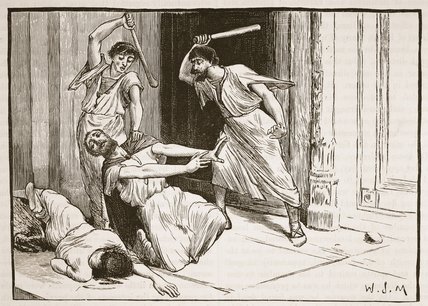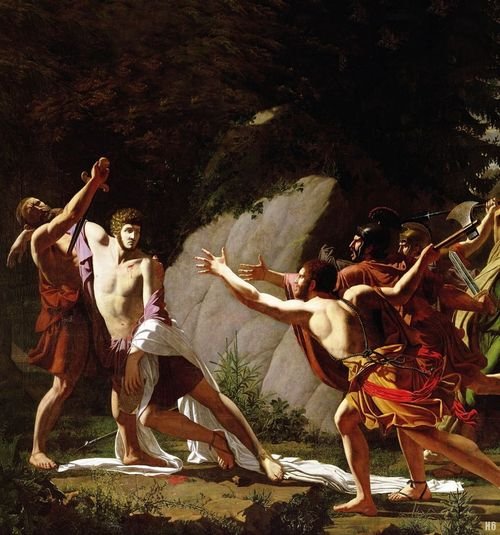How Rome Attempted to Make Reforms
Many problems following the Punic Wars affected Rome tremendously, and few efforts were introduced to fix them. There were five things Rome struggled with the most: government, soldiers, values, slavery, and wealth inequality. With all of these factors combined, the richer were getting richer, and the poorer getting poorer. This meant more pull on the dole with an ever shrinking tax base. Eventually they realized that reforms needed to be implemented. The Gracchus brothers, Tiberius and Gaius, were aristocrats that descended from Scipio Africanus. Despite their upbringing, they made it their mission to change how Rome treated the other half.
The Gracchus Brothers

Tiberius
He was the older of the two and was elected Tribune in 133 B.C. This is quite unusual since Tribunes could only be made up of plebeians originally, not patricians; this suggests that there are hardly any distinctions by this point. Tiberius saw many issues but mostly those of the lower classes. He first wanted to enforce Rome's original land laws from 509 B.C. These land laws stated you couldn't own over a certain amount, therefore Tiberius intended to take back the land from aristocrats who owned more than the legal limit, and redistribute it to landless citizens.
This, unsurprisingly, was unpopular to the aristocrats so instead of passing it through the Senate, he forces it into place through a plebiscite, allowing the people to vote for this policy. He even did something no one had ever done before: he ran for a second term. Tribunes were only allowed one term in a single lifetime. This in itself is breaking the law but the Senate declined to use force on him. Instead, the head of the priesthood gathered a crowd of supporters to chase Tiberius and 300 of his supporters to the Capitoline hill. There they fought with whatever they could find around them, like sticks, but in the end Tiberius and his supporters were all clubbed to death. Since there was much opposition and Tiberius was killed, the reforms never went through.

Gaius
Elected Tribune in 123 B.C. he wanted to finish the work of his brother. One thing he wanted to do was to stabilize the price of food. Normally people would buy their food in season, but in the winter, when food had to be shipped in, prices rose and few people could afford it. His idea was to set up something like a warehouse so the government would purchase grain, save it until the winter when prices were high, and flood the market with it. This meant the government would get its money back and people would buy their own grain instead of leaning on the dole.
Another thing he wanted to push was creating more citizen colonies. He wanted to pass legislation that would give all Latins citizenship, since Rome already provided Latin Rights for people that declined it originally. These Latins wanted citizenship by this time but Romans rich and poor didn't want to extend that to them. One reason was that they didn't want Rome to flooded even more with people once elections were held. The poor simply didn't want to share the rights of the dole.
Gaius pushed these policies by bribing senators and he was so successful he was elected for a second term. Therefore he was pushing reform but at the expense of the law. At some point, Gaius and his followers appeared before the Senate because one of their laws was getting repealed. Within the Senate house, a scuffle took place and one of the Consuls, Optimus, had his servant stomped to death. Optimus requested from the Senate permission to get revenge against Gaius and his supporters.
The Senate granted this so Optimus and is own followers chased down Gaius and company, about 3,000 people. They fled to the Aventine hill and Optimus killed them all. Gaius actually had a servent stab him to death before the others arrived. No reforms came out of any of this. The only thing that came out of this was a worse problem - that violence replaced law as a primary tool of politics.

meep
Hello @vestabesta, nice post. I am a relatively new member and just joined the platform. It would be great if you would take a minute to look at my blog and click the follow button if you like my content. Much appreciated.